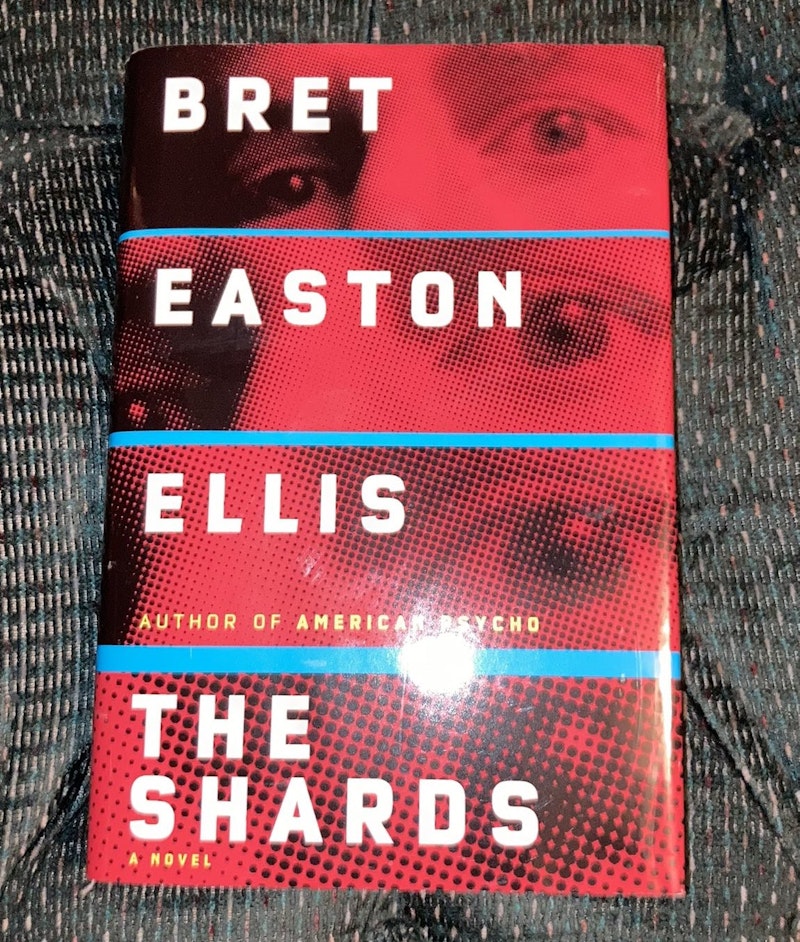“Many years ago I realized that a book, a novel, is a dream that asks itself to be written in the same way we fall in love with someone: the dream becomes impossible to resist, there’s nothing you can do about it, you finally give in and succumb even if your instincts tell you to run the other way because this could be, in the end, a dangerous game—someone will get hurt.” Bret Easton Ellis opens his first novel in 13 years with this sentence, spoken in the familiar voice of the writer many people would first associate with a podcast, not a book; Ellis’ titular Patreon show has been running for a decade, and I’ve kept up with it regularly. Ironically, I only tuned out when he started serializing The Shards—I can’t stand audiobooks, and I hate hearing fiction read aloud. Novels induce their own dream state, much deeper than the euphoria that even the best movies produce. It’s simply a matter of time: no one can read a 600+ page novel in less than four hours. If you can, please email me and complain.
So I spent the latter half of last week finally reading The Shards, which had been sitting on my desk since it came out. It’s not an imposing or “difficult” book—The Shards is Ellis’ most straightforward novel by a long shot—but I knew just from that opening sentence, and the first chapter, that this would sink me for a few days. I re-read Less Than Zero last year, and the ending at dawn in Malibu, with Clay and Blair and the snuff film, replays in my head over and over. And even when I re-read the book, I saw those high school kids as somehow older and taller than me, more grown up, despite the fact that I was 10 years past high school. I’m older than Kurt Cobain, Jimi Hendrix, and James Honeyman-Scott ever will be, but when I watch videos of them performing, it just doesn’t register.
And that’s the most poignant element of The Shards: the novel features Ellis himself and many people that resemble and recall characters in Less Than Zero, which Ellis is writing in The Shards. When I read Less Than Zero, I still see older kids. Reading The Shards, I was constantly struck by the vivid impression that these are kids, these are children… Fact and fiction swim freely together to an even greater degree than Ellis’ previous apex, Lunar Park, and even if his recent Balzac and George Eliot kick came after writing The Shards in early-2020, there’s a gravity and the open, perhaps naive quality of a 19th century-novelist, a pre-modernist novel from the most influential American writer of the last 40 years. So much of The Shards is consumed with keeping up a “pose,” a struggle both literally about fitting in at high school and a metaphor for the experience of being both “Bret Easton Ellis” the celebrity and the real Bret Ellis. It’s also, as the novel goes on, a pose to stay closeted, where his intense sexual relationship with a jock, while mutual, could never play out in public at Buckley in Beverly Hills in 1981.
The Shards is an enormously sad book, dedicated “For no one,” about a 17-year-old boy, who’d soon become a world-famous author, who has been ripped apart in the media ever since, who just wanted a fucking boyfriend when he was young. The novel is a masterfully told story, flitting between horror, coming of age, and movie memoir (I guess Ellis isn’t a James Bond fan—Sheena Easton’s “For Your Eyes Only” is never mentioned, nor the 1981 film, despite its perfect all-purpose title). I can’t stand the term “autofiction”—this is a fictionalized memoir whose fiction is much more carefully weaved than the wrenching and beautiful final pages of Lunar Park; with The Shards, Ellis both comes clean and obfuscates more than ever before, arriving at the culmination of his entire career.
Even at 30, I found the book’s “tranquil reflections” about high school life surprisingly moving; more than wistful, it confirmed something I’ve long found comfort in, that Ellis himself struggles with throughout The Shards: what’s done is done, and there’s absolutely nothing you can do about it. After the horrific murder of his first love, the “Bret Easton Ellis” that’s become a brand and an aesthetic unto itself emerges as a survival mechanism; at the end, he admits that it was the numb coolness of Susan Reynolds that directly influenced his writing style; and how even after all the glamorama of the publishing world in the 1980s and 1990s, when Manhattan was the center of the universe, he was still the boy standing in the woods on the periphery of a party, unsure and anxious about where to go next.
I don’t care about “figuring out” the book or to what degree Ellis is an “unreliable narrator,” a redundant description of any work of fiction; the fact that George Eliot wrote under a male pseudonym is as moving as anything she ever wrote. And the degree to which Ellis exorcises his pain, and the heights he reaches as a novelist in The Shards, are what make it such a monumental work.
—Follow Nicky Smith on Twitter: @nickyotissmith

